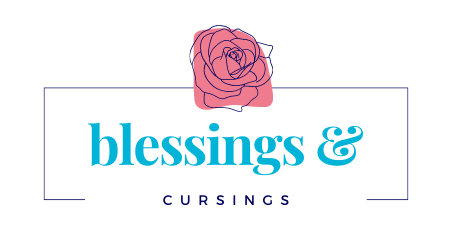What are the first steps to take when I realize my marriage is emotionally abusive?
I remember when I first realized I was being emotionally abused. It came after years of unhealthy and toxic patterns and a series of events that opened my eyes. I stumbled upon an article about resentment in marriage—the first Christian article I found that explained our emotions are indicators. It was a revelation. This article stood out because it didn’t just tell me to surrender my resentment and bitterness and forgive like all the other Christian articles I had read; it told me that resentment in marriage is trying to tell me something.
You can find that article here. I have also written one about What Bitterness in Marriage is Telling You.
One memory stands out vividly. My husband had been giving me the silent treatment for weeks—his way of punishing me when he was unhappy with something I did. After enduring this torture, I gently tried to reconcile, asking, “Can we talk about what happened?” His reply was a firm “no.” As he sat at the table, watching TV on his phone and laughing, I felt miles apart from him emotionally, even though we were in the same room. That was my breaking point. How could he sit there, completely indifferent, while I was suffering? I had always been the one to initiate resolutions and make amends, but this was the last straw.
I retreated to the bathroom, bawled my eyes out, and told myself this was the last time I would cry over him like this. Enough was enough. I started researching and found David Hawkins’ article about resentment and that led me to his other resources. His podcasts were a revelation—they spoke directly to my experience. Covert abuse, a charming exterior but Dr. Jekyll and Mr. Hyde at home. An emotionally immature man dealing with emotions like a six-year-old. A man who was hiding who he really was and dealing with emotions in a destructive way.
I shared my findings with my counselor, and she confirmed it was emotional abuse. This validation was a turning point for me. Within a couple of months, I acted. I created a safety plan, sought education and support, prayed a lot, and drew closer to God. I started learning about my identity in Christ rather than in my roles. I practiced self-care and set healthy boundaries, steps I had already begun years prior. I wrote down my contingencies for the relationship, including my husband getting help from emotionally abusive specialist counselors.
After much prayer and discussion with my counselor, I decided to separate from my spouse. I prepared and waited for God’s courage and boldness. Another abusive incident happened, and I was no longer afraid. At church, I couldn’t bring myself to wear my wedding ring—it felt inauthentic. My husband noticed and when we got home he asked if I was having an affair. When I said no, he wanted to talk. For the first time, he initiated a conversation. I calmly spoke in truth and love: what he was doing was emotional abuse, and it wasn’t okay. I shared with him what it was like to be married to him and the affects it was having on me, including my physical health. I shared with him how I felt and laid out my contingencies and the consequences of separating in a month’s time if he didn’t commit to getting help. Thankfully, he sought help and repented. Our marriage improved dramatically, though it’s not perfect, and we still face struggles.
Now, I know my limits and boundaries. I am free to be myself without punishment. I know I would not tolerate any return to unhealthy patterns. My journey was long, but it led to truth, healing, and freedom. I became a certified life coach and started this blog to help others.
Here’s what I want to share with you. Everyone’s journey is different. There is no one right way. And there’s no guarantee that following these steps will get your spouse to change. In fact, I urge you to not do these steps to get your spouse to change, but because you genuinely want to live out the truth more than anything else.
When you start thinking like that, you’re on your way to becoming healthier. When you truly surrender your marriage and the results to God, saying whatever happens, I will not pretend everything is okay anymore. I will live for the truth no matter what. That’s the kind of commitment it takes to get healthy and heal. I know because I had to get to that place too.
Once I realized that I can’t change my husband no matter how much I love him or how much I give or try, all I could do was get healthy myself, and the rest would fall where it may. The result was in God’s hands, not mine, but I would not live a lie anymore. I would live in truth and love.
This healing was a process of many years. There were several steps I took to get to a place of living in truth, healing, and freedom, and I call it the Healing Journey Path.
First Steps to Take When I Realize My Marriage is Abusive
Phase One – Awareness: This phase involves answering crucial questions like what is emotional abuse, what is covert abuse, overt abuse, and understanding if it’s a big deal. It includes a quiz to help you assess where you’re at in your relationship. One reader said, “This quiz helped me realize it was abuse.”
Phase Two – Self Care: Begin strengthening yourself by being a good steward. It’s not selfish; it’s biblical. Learn the biblical principles and start taking steps to take care of yourself. Rediscover yourself and your dreams by setting smart goals centered on your whole well-being—mind, body, spirit, and soul.
Phase Three: Identity: Work on knowing WHO you are and WHOSE you are. How do we grow and put our identity more in Christ instead of our marriage? Learn the importance of being confident in God, listening to yourself, seeking God’s wisdom above all else, reframing co-dependent thinking, taking thoughts captive, and using biblical affirmations to reshape your thoughts.
Phase Four: Boundaries: This is one of the most impactful phases—setting boundaries. Setting boundaries with a toxic person is a skill in itself. Learn what boundaries are and what they’re not, get wise tips for using boundaries with a toxic person, and follow a step-by-step guide to set boundaries with a toxic person.
Phase Five: The Path Forward: Everyone’s journey forward will be different. The key is to take the next right step for you. Be prayerful, wise, and ensure your safety.
I dive deeper into these phases in my Healing Journey workbook —it’s an impactful first step to take once you’re aware you’re being emotionally abused. Grab your free guide to be put on the waitlist for the Healing Journey workbook.
If this resonated with you, it’s time for implementation and growth:
- Check out this post on “What Bitterness in Your Marriage May Be Telling You “
- Grab my free guide to recognize the top signs of emotional abuse.
- And if you’re looking for someone to share and talk with who truly understands, consider applying for coaching here.
In His strength,
Kristin






